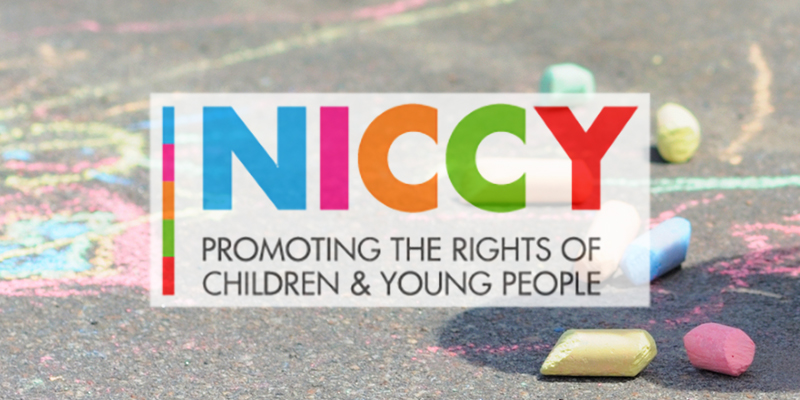Four reasons why the NI Children’s Commissioner is wrong to back a smacking ban

The NI Children’s Commissioner Chris Quinn has backed calls by the Royal College of Paediatrics and Child Health (RCPCH) to ban smacking.
It’s not the first time a Northern Ireland Children’s Commissioner has voiced support for a ban. And it’s not the first time they have used misleading arguments to justify their support.
Here’s four reasons why Quinn is wrong to back a smacking ban.
Quinn, speaking to the BBC, said the debate around a smacking ban had been had and that “it’s now time to act”.
But the debate is not over as Quinn would like everyone to believe. Like many of his counterparts, he tries to convince ordinary people that they are in the minority if they believe parents should have the freedom to smack their children. Yet opinion polls tell a different story. When asked if smacking should be a criminal offence, most people still say no.
For example, YouGov’s opinion tracker, which has recorded public opinion on banning smacking since 2019, shows consistently that a majority believe that smacking should be legal.
Quinn’s call followed the release of a report by the Royal College of Paediatrics and Child Health (RCPCH). That report says the law on smacking should change; but the academic studies it uses are about children who have been illegally abused. It’s far from the first advocacy report to misleadingly use evidence of genuine harm to justify criminalising loving and caring parents.
Research on smacking can often be problematic. Many studies are conducted by advocates of a smacking ban to justify their position. Other research is used out of its original scientific context to make totally unjustifiable claims. For example, the studies often use already-existing datasets which don’t distinguish between a light smack by a loving parent and actual physical abuse. In truth, it’s impossible to evaluate the benefit or harm of a single instance of discipline. We mustn’t dress up ideology as science.
So, the debate is far from over.
Secondly, Quinn states, “it’s never okay to use violence” and “it’s never okay to use violence against children”, as though this is what opponents of a smacking ban are seeking to condone. No one is claiming that it is okay to use violence. That is not what banning smacking is about.
Violence is already outlawed. Abuse is thankfully already illegal. Banning smacking would remove the ‘reasonable chastisement defence’, an exception to the law against assaulting a child that ensures innocent parents who gently tap their child on the bottom aren’t wrongly convicted. Anything which leaves more than a temporary reddening of the skin – anything which a judge considers unreasonable – is already illegal.
Thirdly, Quinn told the BBC: “I think we need to educate society”. This is very revealing. A smacking ban is not about protecting children from violence. It is about using the criminal law to promote a different parenting philosophy.
These so-called parenting ‘professionals’ claim that mums and dads need educating in this ‘better’ way of parenting. But smacking has been part of the parenting toolbox for generations and parents are best placed to decide what is best for the raising of their own children.
And lastly, Quinn says we should “learn from what other countries have done on this issue”. That’s a good idea. We can learn that most countries which have a so-called smacking ban have actually used the civil law and not the criminal law. Most of the time it is symbolic and has no enforcement mechanism or is not enforced in practice.
But what activists like Quinn are calling for is a smacking ban using the criminal law. They want to extend the criminal law of assault to include smacking. This would result in cases becoming a matter for the police, prosecutors and the courts. And parents convicted of smacking would get a criminal record.
Sweden was the first country to outlaw smacking in 1979 and is often referred to by smacking campaigners as the model to follow.
One argument often cited as a reason to ban smacking is that it teaches children that violence is acceptable. If this was the case then we might expect a decrease in the level of violence among children after a ban. But it is quite the opposite in Sweden. Figures show that child-on-child violence increased by 1,791% between 1984 and 2010.
Psychiatrist David Eberhard also found that following the Swedish ban, parents became scared to say no to their children.

